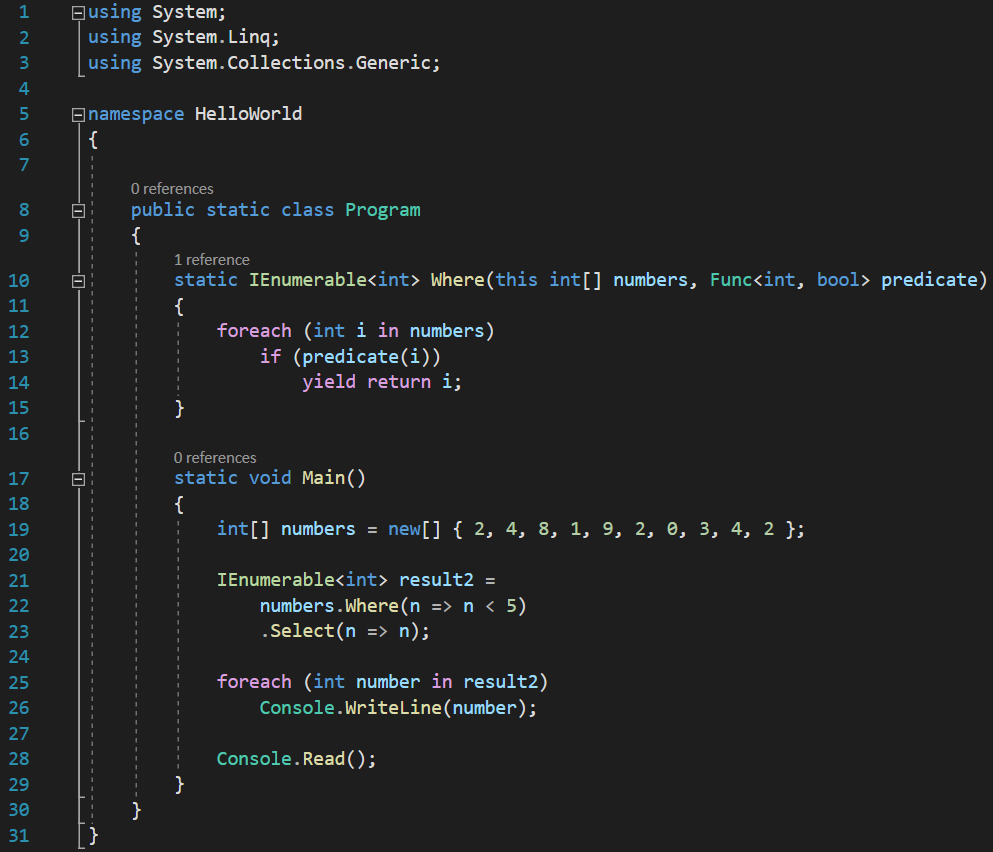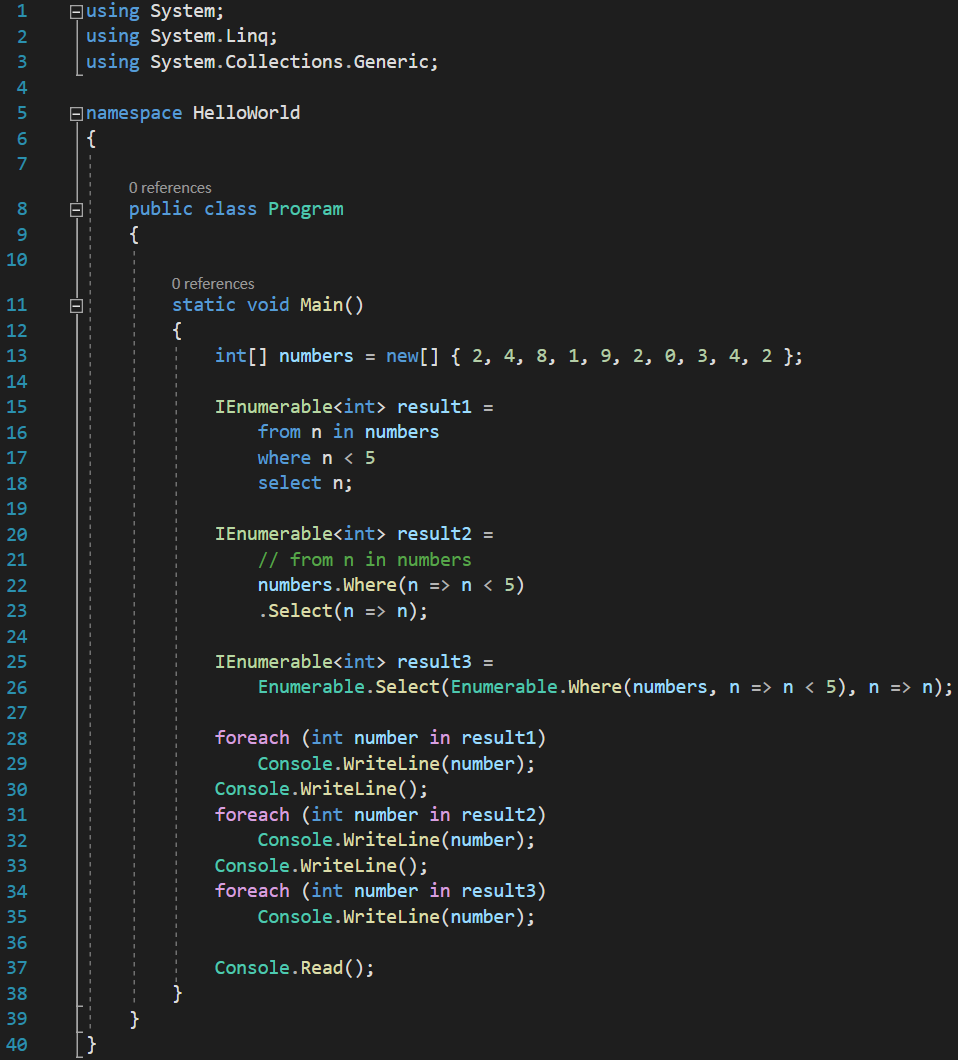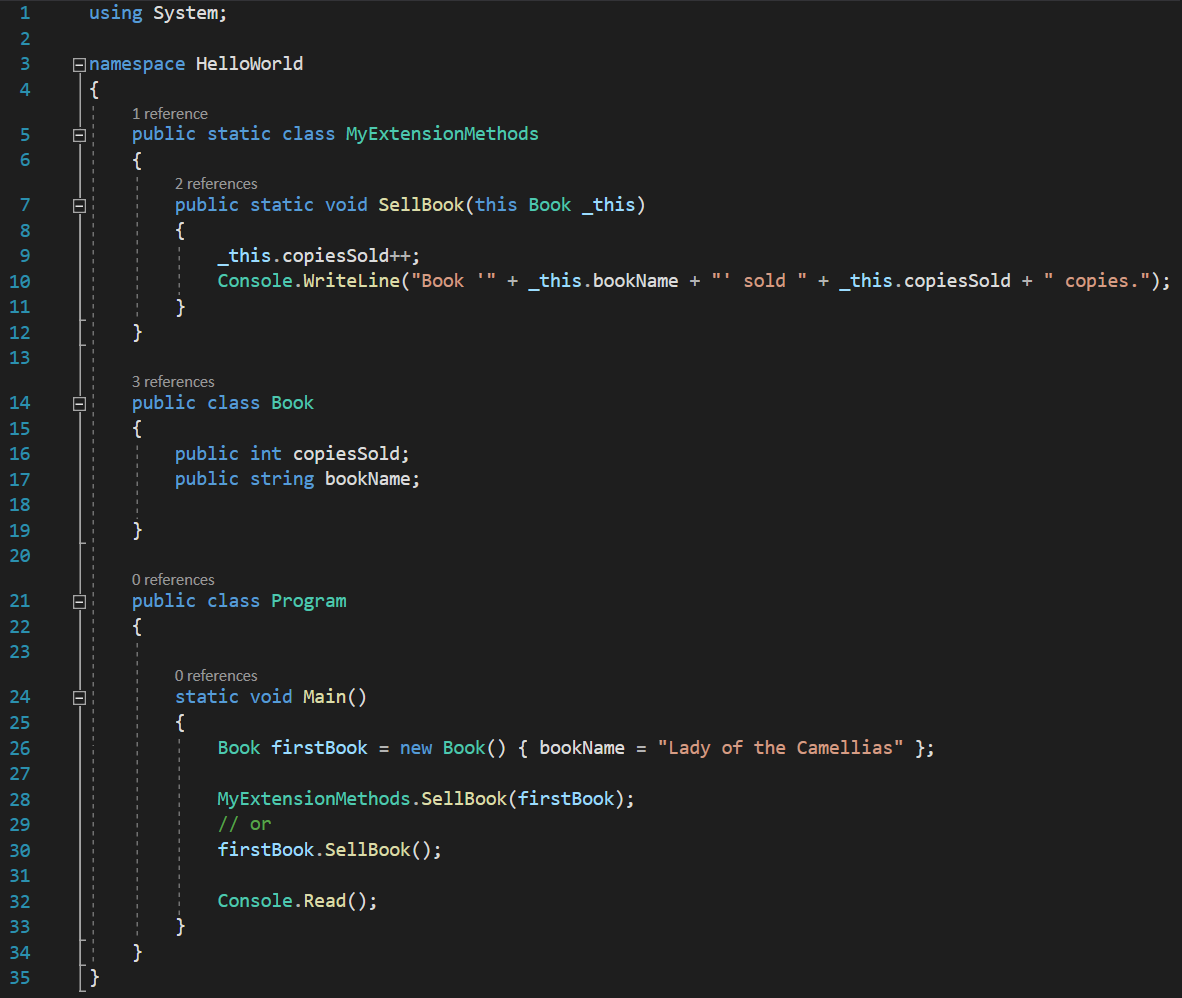In the previous lesson, I talked about the fact that LINQ actually delays the execution of its constituent queries up until the very last moment, when we actually need the data. What was not as obvious at the time was the order in which the LINQ queries are executed.… Read more
Archive for the ‘LINQ’ Category
LINQ execution workflow
Wednesday, June 23rd, 2021Deferred execution
Wednesday, June 9th, 2021Degenerate Select clauses
Monday, June 7th, 2021Taking an excerpt code from the previous lessons about LINQ, we had these codes:
[raw][/raw]
 If you paid attention to the above code, you probably noticed the Select(n => n) function. If you analyze it a bit, you realize that it’s a lambda expression that all that it does is to take a parameter named n and return it, without any modification.… Read more
If you paid attention to the above code, you probably noticed the Select(n => n) function. If you analyze it a bit, you realize that it’s a lambda expression that all that it does is to take a parameter named n and return it, without any modification.… Read more Writing custom LINQ extension methods
Monday, June 7th, 2021In the previous lesson, when I introduced you to a preview of what LINQ looks like, I ended up with this code:
[raw][/raw]

And we learned that the free form syntax of LINQ is the same thing as the declarative syntax of LINQ, which is also the same with some bunch of extension methods for the IEnumerable interface, declared inside a class called Enumerable.… Read more
LINQ
Monday, May 24th, 2021Finally, we now know enough to start talking about LINQ, which is an acronym for Language Integrated Query which is basically just a fancy way of doing queries and SQL-like things in C#. If you don’t know what SQL is, you should probably research about it a bit first, but, at a macro level, SQL (Structured Query Language) is just a language for interacting with databases.… Read more
Yield break statement
Tuesday, May 11th, 2021Whenever we use the yield keyword in a statement, we indicate that the method, operator, or get accessor in which it appears is an iterator. Of course, since we know that iterators are used to… duh! iterate on collections of data, and since we know that when iterating on a collection, we can use the break keyword to immediately terminate the iteration, it is only obvious that whenever we use an yield return statement to return values in an iterator, like I’ve shown in the previous lesson, we can also use yield break to terminate the iteration of the said iterator.… Read more
IEnumerator and IEnumerable
Friday, May 8th, 2020Before we can start delving into LINQ, we need to first understand the underlying principles upon which it is built. LINQ is all about operations over collections, so, you’ve guessed it: we will be dealing with collections.
You already learned that of all data structures, arrays are the fastest, because they are unsorted non-generic data structures.… Read more
The meaning of “this” on extension methods
Monday, May 4th, 2020In the lesson about extension methods, we learned that they are a nice way of adding extra functionality to existing types, and we did that by adding a static method inside a static class, that took a type parameter prefixed with the this keyword, like this:
[raw][/raw]

So, although my original Book class does not contain a method called SellBook(), I am able to call it inside the Main() method because I declared an extension method for the Book class, and this static SellBook() method took a Book type parameter prefixed with the this keyword, that signals the compiler that the method is intended as an extension method for the Book type.… Read more
Extension methods
Monday, May 4th, 2020Sometimes, programmers find themselves in need of adding new functionality to already existing codes, in order to improve or complete them. If the said source code is available, the task is simple – they only need to add the required functionality and recompile.… Read more